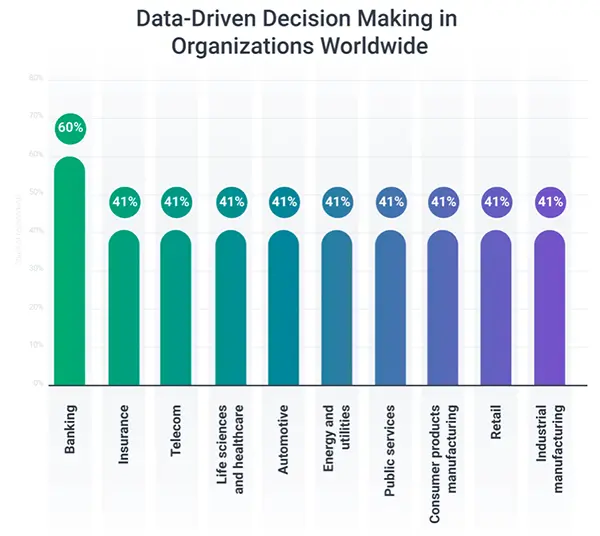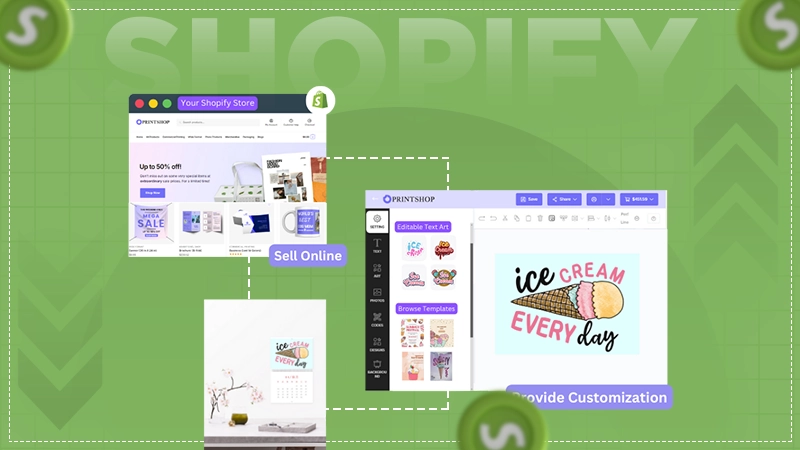Democratizing Data: A Revolution in Decision-Making for Businesses
In a rapidly progressive, automated world, data-driven businesses are the forerunners. Market analysts understand the importance of accurate information that directly impacts the decision-making process.
Significant to a company’s growth is opening channels of ideation by diversifying records within the organization to different levels, — which is called data democratization.
By breaking down the barriers from a selected few to allowing access to non-technical individuals, it is indeed a revolution.
This article explores how data democratization transforms businesses by fostering a collaborative approach to reshaping the way companies operate and compete.
The Power of Accessible Data
Data provides a competitive advantage to every business, and constant improvement in the processes, products, and operations helps build a better enterprise. In the past, driving this power were a few IT experts with strict data silos because of poor technical knowledge and security breach issues.
In contrast, the intuitive, analytical tools have improved the overall work culture with shared resources. Democratizing the data is the first major step to empower all workers to accelerate operational efficiency.
When the tasks are filtered in a structured way, innovative ideas are produced as a result of a deeper understanding of customer behavior and better forecast of financial trajectories.
THINGS TO CONSIDER
Organizations should consider using a multi-pronged approach for data democratization. This includes the use of automation, no-code tools, pre-trained machine learning models, self-service analytics, and training staff.
Breaking Down Data Silos
It is a major step for big companies as well as startups to transform the traditional management methods of restricting data silos.
However, despite a slow integration, the importance of better understanding within the enterprise unlocks valuable insights that otherwise would have gone unnoticed or never utilized.
Improving efficiency should always be prioritized, but it cannot be impactful without the entire team being given an opportunity for data accessibility.
With a cross-functional data-sharing strategy, there is less wait time for extracting reports resulting in faster project turnarounds.
Data-Driven Decision Culture
An organization should be well-informed about any changes not just in the market trends, but most importantly in the customer interests. Therefore, the top management is directly impacted by the way a product or service is received and utilized.
Data diversification for every member, from the foundation to the marketing teams, ensures decisions at all levels are based on current and actionable data.
The feedback does not disintegrate at any level, but in fact becomes a driving force for a progressive brand that actively inspires the workforce to achieve success.
Democratization becomes a key element that improves overall productivity, reinforcing a collaborative approach.
The Real-Time Insights
The technology of automation is directly related to accelerating real-time insights with quick strategic changes in marketing plans. With the restriction of data silos removed, the different teams can directly analyze the impact and therefore refine ideas and products.
This includes monitoring website traffic dynamics, tracking inventory levels precisely, or evaluating customer sentiment through social media interactions.
There is a continuous requirement to understand and provide instant solutions for minor hurdles in the way of company growth.
Real-time data and innovative ideas from diverse teams, give a brand a significant competitive advantage over its competitors.
Data democratization opens channels of communication, equipping businesses to react instantly to any market shift while changing customer preferences.
It also means launching timely campaigns offering unique services that accelerate a company’s growth even during stagnant market trends.
The graph below highlights the importance of data-driven decision-making in any organization worldwide. It is the most significant method to leverage a company towards its revenue goal. With a strategic approach to data-sharing, companies can instantly recognize customer preferences and stay ahead of their competitors.

Improved Customer Experience
There are many outdated customer service processes that need timely adjustments and improvements. Creating separate ticks for every data request through report democratization helps identify new opportunities that may be lagging in providing better customer experience.
The changing expectations of customers toward a brand can be understood with deeper insights. It also helps streamline various channels to capture unstructured data and improve overall services.
With AI-driven reports accessed across the organization, it becomes easier to compare past and present actionable strategies.
Some industry leaders like McDonald’s use the benchmarking technique to track and measure competitor’s performance. This method is one way to create a robust functionality that is undeterred when other brands are failing.
Conclusion
In this age when growth is calculated by innovation and speed, data democratization helps in making a business stronger at an organizational level. Earlier, the data silos created a restricted attitude that was functional only up to a level.
By providing access to non-technical workers, the overall system from foundation to marketing to managerial, everything is collaborative for the company’s success. For making informed decisions, accurate data will always be an advantage.
Driving this force is assistance from automation and team-collaborative capabilities, ultimately yielding higher revenues backed by a strategic data-sharing approach.








